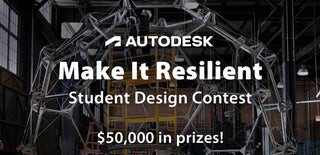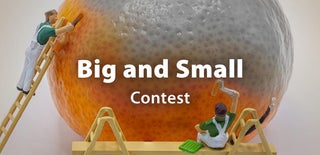Introduction: Articulating Lamp
This is an instructable for the course we are taking at the California State University, Long Beach, "DESN 551: Materials, Tools, and Techniques of Prototyping" taught by Behnaz Farahi.
@Nigole_lim and I have worked together through ideating and prototyping to create a final articulating paper lamp.
Supplies
Poster Board
Cardstock
Dome Tap LED Light
X-Acto Knife
Scissors
Hot Glue
Glue Stick
Laser Cutting Service
3D Printed Parts
Step 1: Ideate
We began our process for this project by drawing out our different ideas on paper.
Step 2: Explore in 3D
After having a rough idea of our vision for our lamp, we began to build various mockups to get better insight on how to physically build the lamp and discover things we wouldn't be able to if working in 2D. We were able to discover many different forms and functions from the different mock ups.
Step 3: Final Direction
After exploring in 3D, we decided to move forward with this aperture like design, where when you push down on the top, the entire form articulates up and down as well. We thought that this would be a cool lamp because it is an interactive lamp with a surprise form factor of movement.
Step 4: Mechanism Iteration
We knew that we wanted to build on the movement surprise form factor on the lamp, so we began prototyping more iterations of the articulating lamp. We tried using thread to pull petal like parts as well as using origami folds and scores to create movement when pushed down which we liked the best (the last one).
Step 5: Form Iteration
We decided to go forward with the origami fold and scored mechanism and wanted to create a more dramatic aesthetic and movement to it. We drew inspiration from Philip Beesley's work and attached various dramatic bristle fibers to our mechanism.
Step 6: Laser Cut Testing
We finalized our design template in Solidworks and had our pieces laser cut in different colored papers and sizes to see what would look good for the final result. We decided to use white and black cardstock to create contrasting colors and emphasize the movement. We also layered a smaller template within the bigger one to create more volume in the bristles and movement.
Step 7: Ideation + 3D Printing
Some ideations to figure out the mechanism that will get the lamp to turn on and off. Internal housing components were designed to make the lamp sturdy and functional. The parts were 3D printed and tested to see if they worked or not. Some parts had to be redesigned to correct their functions.
Step 8: Final Construction + Demonstration
Here is the final result of the lamp project. Enjoy!

Runner Up in the
Laser Challenge











